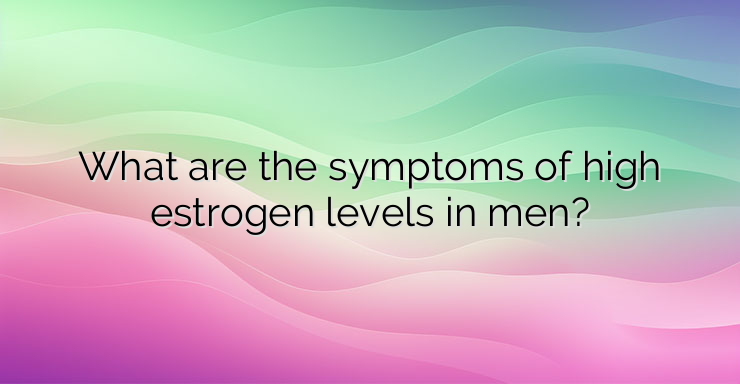The hormones – testosterone and estrogen contribute to the overall function of the body. If they are out of balance, they can cause unusual symptoms in men. Estrogen is usually called the “female” hormone and testosterone the “male” hormone. This is not entirely accurate, as both hormones are present in both male and female bodies. However, higher amounts of testosterone are normally present in the male body and higher amounts of estrogen are normally present in the female body. Testosterone is the most important hormone for male sexual development and function, but estrogen must be in balance with testosterone to help it control sex drive, erectile function, and seminal fluid production. Testosterone naturally declines as men age, while estrogen increases. Worryingly, if estrogen levels are abnormally high, it can be a risk factor for conditions such as diabetes and some forms of cancer. There are two main types of estrogen in men – estrone and estradiol. Some of the main symptoms of high estrogen levels in men may include: Estrogen is one of the hormones important in the production of semen. High estrogen levels can slow down the production of semen and make it difficult to create healthy sperm. Elevated estrogen can cause benign growth of the mammary glands in men, a condition called gynecomastia. Elevated estrogen levels can affect the balance of hormones that are needed to get an erection. This condition can occur especially with low testosterone levels. Too much estrogen can cause short stature or delayed puberty in boys. Other possible symptoms of high estrogen that may occur along with hormonal imbalance may include: Decreased libido; Feeling tired; Loss of hair all over the body; Reduced muscle mass; Decreased growth of the penis and genitals; Loss of bone density (osteoporosis) Sudden feeling of heat (hot flashes); Focusing problems. Bibliography: Schulster M, et al. (2016). The role of estradiol in male reproductive function.


Leave a Reply